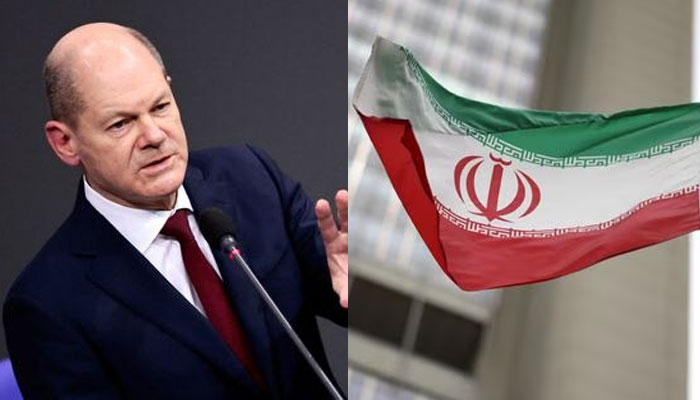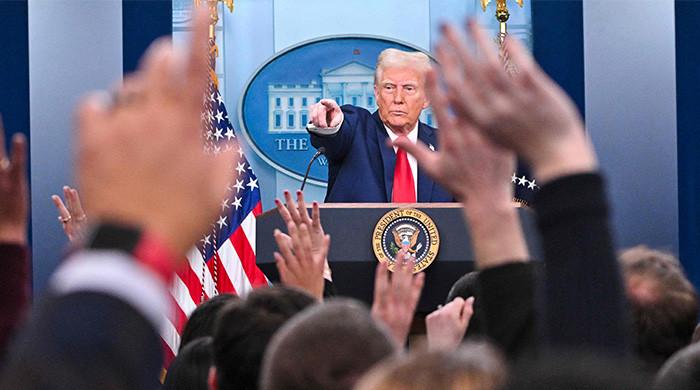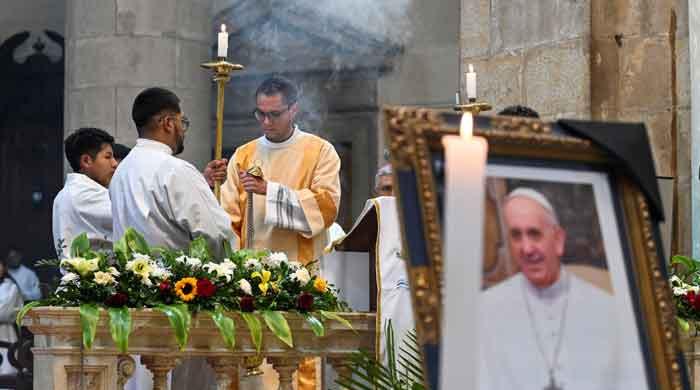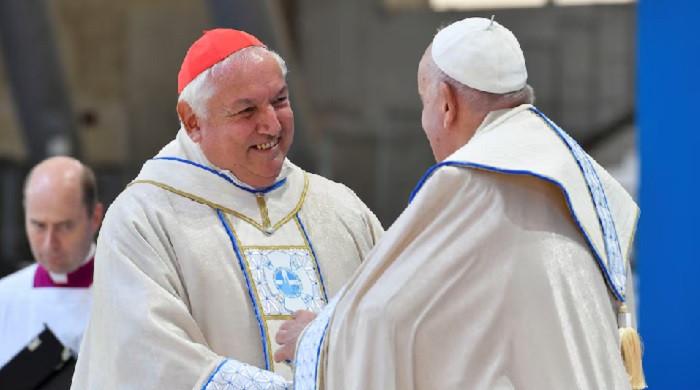Germany pins Israel-Hamas war on Iran, but has no evidence to back it up
Scholz also revealed measures to crack down on organisations supporting the Gaza-based group
October 12, 2023

German Chancellor Olaf Scholz declared on Thursday that Iran bears responsibility for aiding Hamas in reaching the point where it launched such a large-scale attack on Israel.
In his announcement, Scholz also revealed measures to crack down on organisations supporting the Gaza-based group.
While stating that there was no concrete evidence of Iran's operational support for the attack, Scholz emphasised that it was clear that without Iranian assistance, Hamas could not have executed this unprecedented assault. He criticised the jubilant statements from the top of the Iranian regime and regional government officials, confirming Iran's role in Gaza.
Iran has celebrated the Hamas attack but denied any direct involvement. In a special address to the German parliament, Scholz outlined the government's actions, including a ban on fundraising and activities that support Hamas, glorify its actions, or display its symbols.
Additionally, Scholz announced a ban on Samidoun, an international activist group that claims to support Palestinian prisoners in Israeli jails. German authorities argue that Samidoun promotes hate speech and calls for Israel's destruction.
Germany showed support for Israel after Hamas militants conducted a cross-border infiltration into Israeli towns and villages near Gaza, resulting in the deaths of at least 1,300 people and the taking of dozens of hostages.
Germany has frozen Palestinian aid while conducting a review. The country has also increased security measures for Jewish institutions and banned a pro-Palestinian protest scheduled in Berlin.
Scholz, like other German leaders, stressed Germany's historical responsibility toward Israel due to the Holocaust. While acknowledging that civilian suffering in the Gaza Strip is likely to worsen, he attributed this to Hamas and its attack on Israel. He also criticised the "shameful" silence of Palestinian President Mahmoud Abbas, whose Fatah movement, based in the West Bank, is a rival of Hamas.
According to Gaza authorities, over 1,200 people have been killed in Israeli retaliatory airstrikes.
Scholz emphasised the importance of preventing further regional escalation and cautioned Hezbollah, another Iranian-backed militant group in neighboring Lebanon, against attacking Israel. He mentioned being in close contact with Egypt's President Sisi, who has channels to Gaza, and plans to speak with Turkey's President Erdogan and receive the Emir of Qatar, all of whom can play a crucial role in de-escalating the situation.











